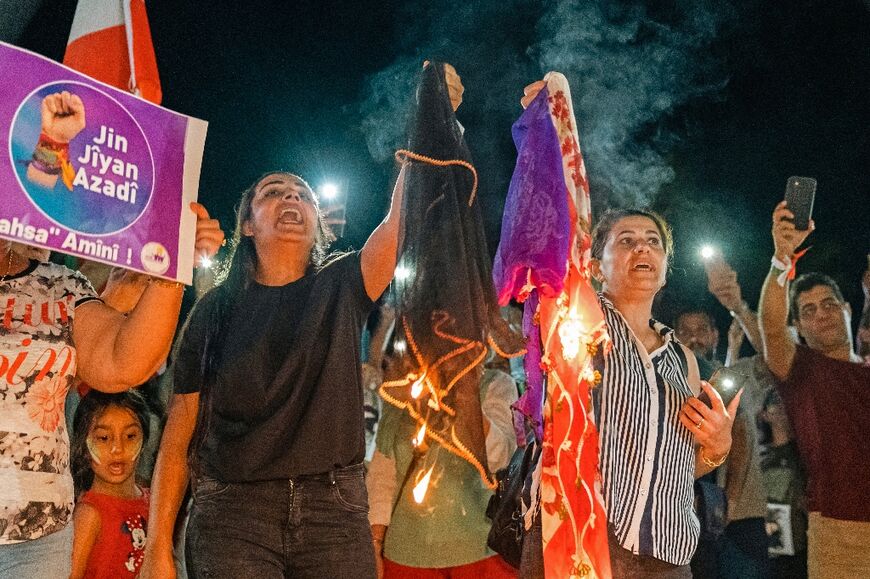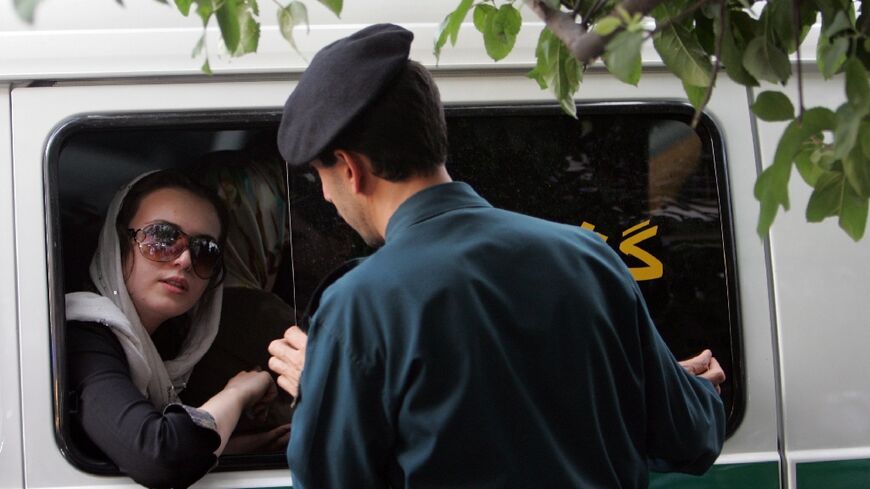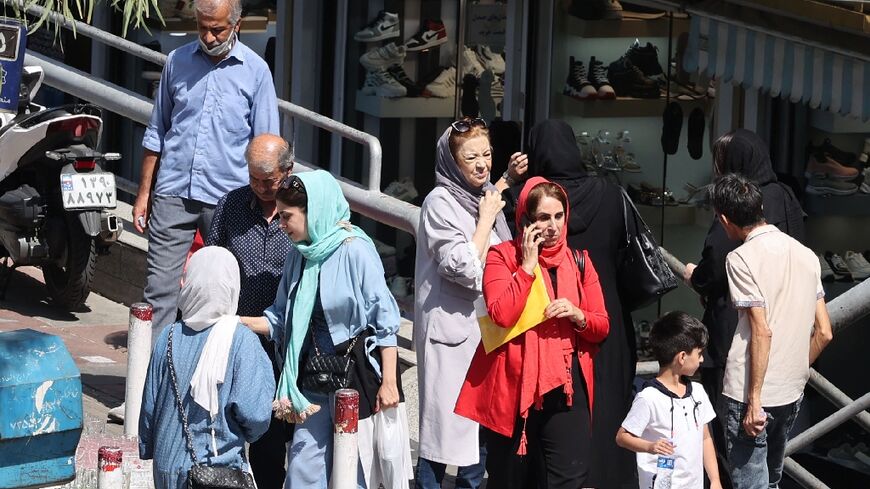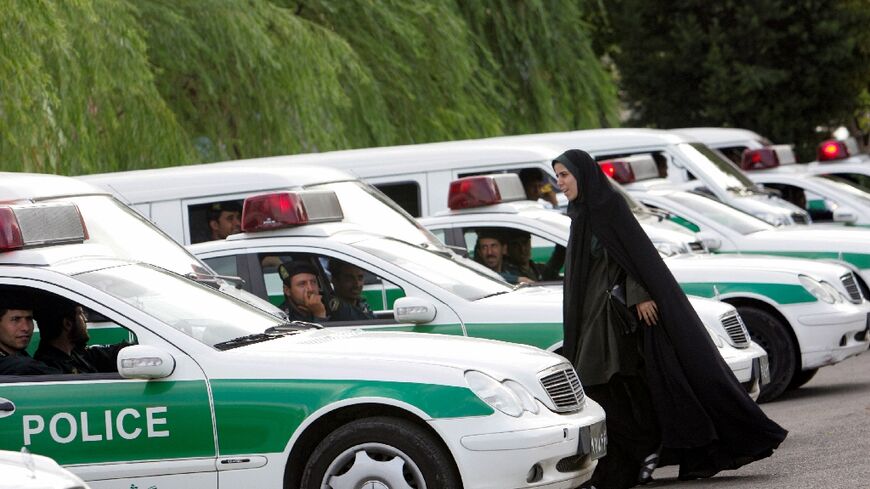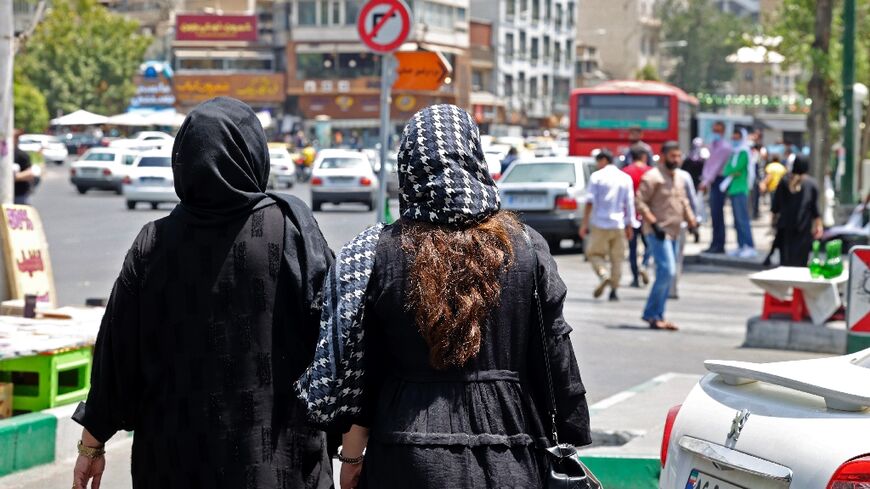Iran's morality police: cracking the whip for over a decade
For over a decade, Iranian women who have ventured outdoors, even for a simple errand, have done so with the fear of running foul of the notorious morality police.
Those found in breach of the Islamic republic's strict dress code face being hauled into one of the vice units' green-and-white vans for a lecture on how to wear their headscarf, or a brutal beating.
"They caught me next to the metro station because I had a piercing and I was... not properly dressed", according to Iran's rules on modesty in public, Donya Fard, 26, told AFP.
"It was very scary because I was very unfamiliar with these circumstances, I was crying" inside the van, said the activist now living in Cyprus, who eventually got off with a warning.
Many Iranian woman have faced far worse. One of them was Mahsa Amini, 22, who was picked up by the morality police in Tehran on September 16 and declared dead three days later.
Her death -- which activists say was caused by a blow to the head, and authorities blame on a pre-existing medical condition -- has set off a wave of protests in which women have burnt their hijab headscarves.
The hijab became mandatory four years after the 1979 revolution that overthrew the US-backed monarchy and established the Islamic Republic of Iran.
The morality police -- known formally as the Gasht-e Ershad or "Guidance Patrol" -- was established under hardline president Mahmoud Ahmadinejad, to "spread the culture of modesty and hijab".
It began its patrols in the 2006, its officers initially issuing warnings before starting to crack the whip and arresting women the following year.
The vice squads are usually made up of men in green uniforms and women clad in black chadors, garments that cover their heads and upper bodies.
- 'Intimidate and scare' -
The role of the units has evolved, but it has always been divisive, even among candidates running for the presidency.
Clothing norms gradually changed, especially under former moderate president Hassan Rouhani, when it became commonplace to see women in tight jeans with loose, colourful headscarves.
But in July this year his successor, the ultra-conservative Ebrahim Raisi, called for the mobilisation of "all state institutions to enforce the headscarf law", charging that "the enemies of Iran and Islam have targeted the cultural and religious values of society by spreading corruption".
In spite of this, many women continued to bend the rules, letting their headscarves slip onto their shoulders or wearing tight-fitting pants, especially in major cities and towns.
A mobile phone app called Gershad was created in 2016, using crowd-sourcing data to pinpoint the location of morality police units so that women could avoid them.
The morality police, unable to enforce the rules on all women, have tended to single out some in order to "intimidate and scare" the others, said Omid Memarian, prominent US-based campaigner and journalist.
"The death of Mahsa Amini came after months of a new push to force people to wear the hijab in public," said Memarian.
"Videos of men throwing women into police vans, videos of the police committing violence, videos of women screaming and shouting and objecting to this policy... really made this issue a sensitive one," he told AFP. "People were infuriated."
- 'Terrifying' -
In the protests that have rocked Iran for weeks, young women have defiantly removed their headscarves on the streets and chanted "Women, life, freedom", at times facing down the security forces.
Being arrested by Iran's morality police strikes fear into women, as they have all heard horror stories from family and friends.
Seagull Shahbazi, another Iranian living in Cyprus, said the morality police stopped her in the street at the age of eight and warned her she faced jail unless she wore a hijab.
"It was terrifying because I had heard what would happen to women who went to jail... from my own mother's experience," she said.
The 32-year-old said the punishments could range from being sent to a re-education centre, with a mugshot taken, to being beaten, whipped, raped or even killed.
"They oppress people so much," she told AFP. "They find the littlest thing to pick on them."
Despite reports the morality police have disappeared from the streets amid the women-led protests, the security forces seem to have tightened the noose through surveillance cameras and anonymous informants.
Some Iranians have taken to social media to say they have received text messages from the police for being unveiled while driving, punishable with a fine or by having their cars impounded.


